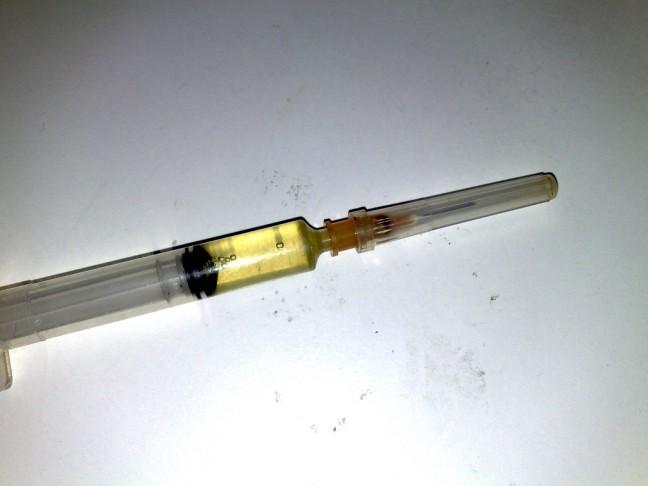The issue of heroin trafficking and abuse is getting attention at the Capitol, with a round of legislation to combat heroin earlier this month and the arrest of three heroin distributors in Madison last week.
The trend has prompted the proposal of four more bills on Monday to combat heroin addiction by Rep. John Nygren, R-Marinette.
“Citizens all over Wisconsin are alarmed by the rising use of heroin that has struck their communities,” Nygren said in a statement. “They are concerned with the crime and hardship that comes with this powerful drug and realize there is a need for action.”
The legislation would require the Department of Health Services to construct a network of opiate treatment centers in underserved areas and instruct the Department of Corrections to create additional measures to ensure chronic heroin addicts receive treatment, according to a different statement from Nygren.
Overdose hospitalizations in the state have risen steadily since 2002 and, by 2011, accounted for approximately two of every 10,000 hospital visits. Opiate-related deaths have also grown from 2.19 per 100,000 deaths in 2000 to 8.08 in 2011, a report by the State Council on Alcohol and Other Drug Abuse found.
It is important to note that death rates include overdoses from heroin and other opiates, not just heroin alone, Jennifer Miller, Department of Health Services spokesperson, said in an email to The Badger Herald.

“Heroin addiction is kind of a mixed bag,” Cheryl Wittke, Safe Communities of Madison spokesperson, said. “Some people get addicted to heroin because of opiate medications prescribed for an injury.”
Wittke said recent legislation is a good way to make it easier for first responders to have access to Narcan, a drug that counteracts the effects of opiate addiction.
For example, a community in North Carolina expanded the number of first responders trained in administering Narcan in the case of heroin overdose and saw a 71 percent drop in overdose deaths, according to Wittke.
“We see this as a first step focused on saving lives, which is essential,” she said. “The hope is that people will get into treatment and get better.”
Wittke said local groups like hers are working to address opiate addiction with a comprehensive strategy to reduce both the supply and demand for the drugs.
Safe Communities is a collaborative group of about 300 organizations and individuals that work together and with law enforcement in Dane County.
“We’re very fortunate to have officers and leadership who see this as a public health issue, not just the criminal aspects,” Wittke said.
In addition to responding to the immediate issue of heroin overdoses, she said it is necessary to reduce the amount of opiate medications health care providers prescribe. Patients can become addicted to opiates because of pain medications prescribed after an injury, she said.
Wittke said when access to medication is cut off, those with a predisposition to addiction sometimes turn to heroin, which can be cheaper and easier to obtain.
“It’s a chronic disease, and it’s an illness,” Wittke said.
[Photo from Flickr user wstryder]













